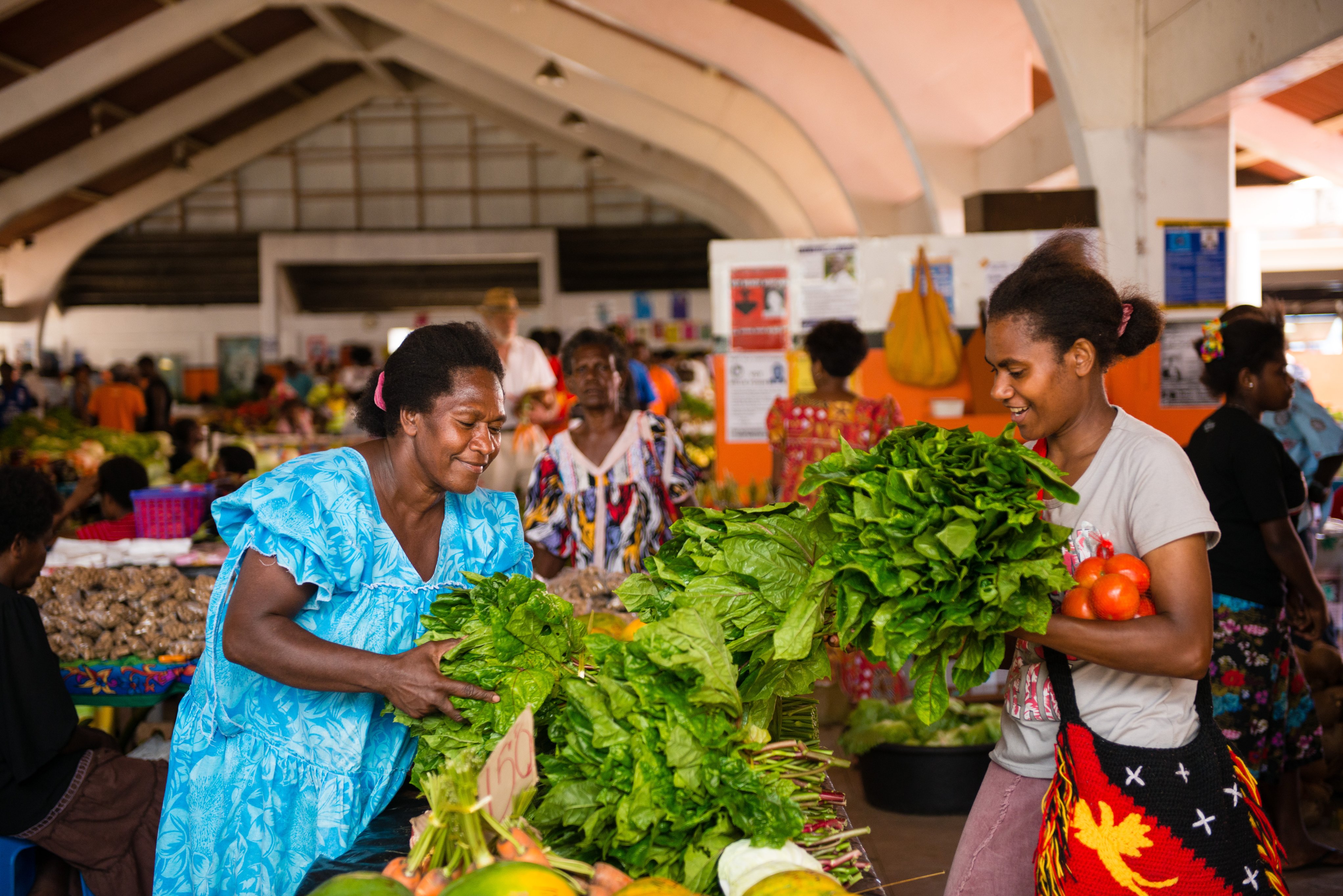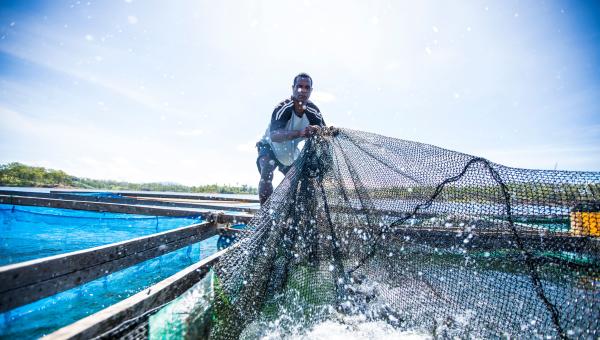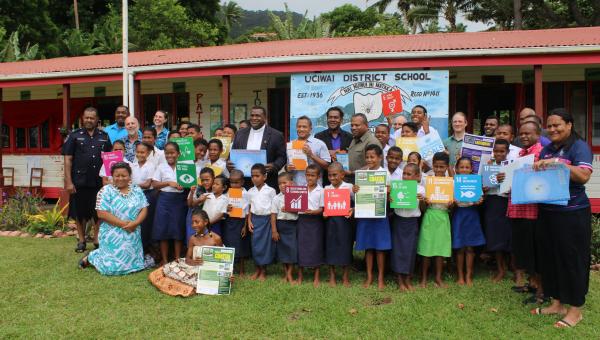Inclusive Growth
Pacific island countries face common challenges due to their small size, geographic isolation and natural disaster vulnerability. The region is experiencing an increasing level of poverty and slow economic growth. While there are many common challenges, they differ in degree between countries.
200≈
new jobs
created in green/blue businesses in the region.
1.8
people
in Fiji, PNG, Samoa, Solomon Islands, Tonga and Vanuatu, now have access to formal financial services.
We support country-led development efforts to implement inclusive growth policies and strategies towards increasing financial inclusion and reaching out to the poor. Working with governments and the private sector, we help strengthen business policies and initiatives to increase the competitiveness of small and medium-sized enterprises. We also prioritize support to government-led social data collection to identify the most vulnerable as well as pro-poor interventions protection initiatives.

Vanuatu market
In depth
Inclusive service delivery
We help countries address a range of policy and institutional bottlenecks to ensure more inclusive service delivery, focusing on issues facing women, youth and vulnerable groups. We draw on our comparative advantage and experiences in supporting the implementation of the Millennium Development Goals Acceleration Frameworks to support localization of Sustainable Development Goals (SDG) 1, 5, 8, 10 and 17. At the country level, we target the alignment of national and sectoral plans and multi-year results-based budgets, exploring all potential sources of revenue through development finance assessment aimed at optimizing and increasing the collection and use of finance for national priorities.
Innovation
We assist the countries in identifying innovative technological solutions to build national data ecosystems for evidence-based policymaking using disaggregated data. We work closely with the United Nations and regional partners engaged in data generation, such as UNFPA, UNICEF and the Pacific Community, through national and sample surveys. The data is used to track progress towards national priorities and their links to regional and global development priorities, identify groups to target and analyse and formulate evidence-based policy formulation and SDG Acceleration Frameworks.
Triangular and south-south cooperation
In keeping with Goal 17, the support fosters South-South and Triangular Cooperation and implementation of the Pacific SDG Roadmap, the Framework for Pacific Regionalism, the SAMOA Pathway and other regional and international instruments and partnership mechanisms.
We work with regional organizations, governments, private sector, civil society and United Nations partners to strengthen institutional arrangements and change behaviours to promote equal influence and participation of women and youth in priority-setting and implementation of activities at all levels. Countries are encouraged to establish measures that ensure the consistent engagement of communities in rural areas and outer islands, faith-based groups and the private sector in the design and delivery of essential public services. As part of an integrated, risk informed development approach, we help countries and communities integrate risk assessment and adaptation measures into planning processes at all levels to address vulnerabilities.
Promote blue economies
Responding to the changing face of poverty and hardship in the Pacific, we promote the concept of blue/green economies to help countries establish an enabling environment for private sector initiatives that create jobs for women, men and youth, recognizing the vast economic benefits of marine and land ecosystems while ensuring their sustainable management. To that end, we scale up successful initiatives such as organic farming, fisheries, ecotourism and farm-to-table business models, especially targeting marginalized urban youth. Building on past support to the informal sector, we promote opportunities for employment, incomes and matching investment in social enterprises that tackle community-based improvement projects such as resilient village infrastructure and waste management. To promote access to finance, we scale up a range of inclusive financial services targeting low income women and men in rural areas.

 Locations
Locations
